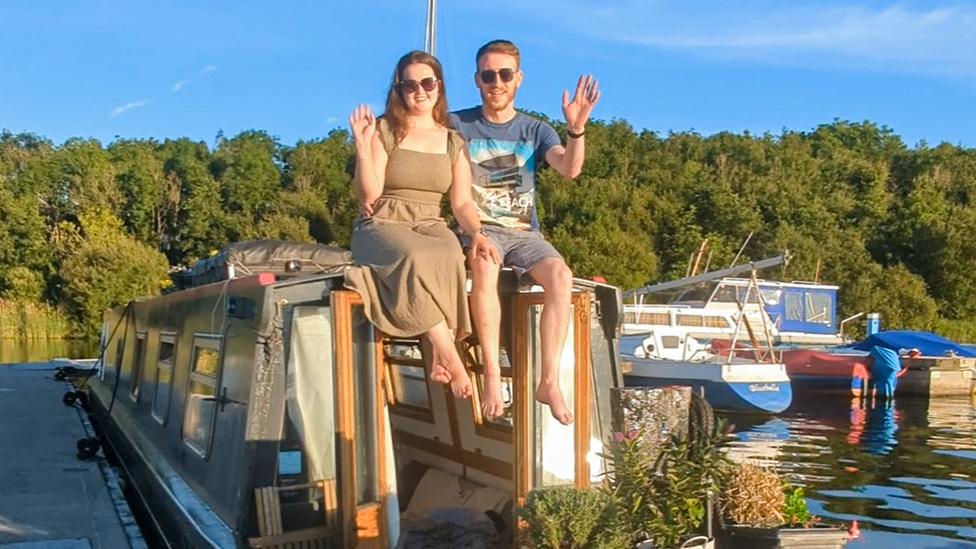Geothermal energy: Stormont borehole to tap into underground heat
- Published
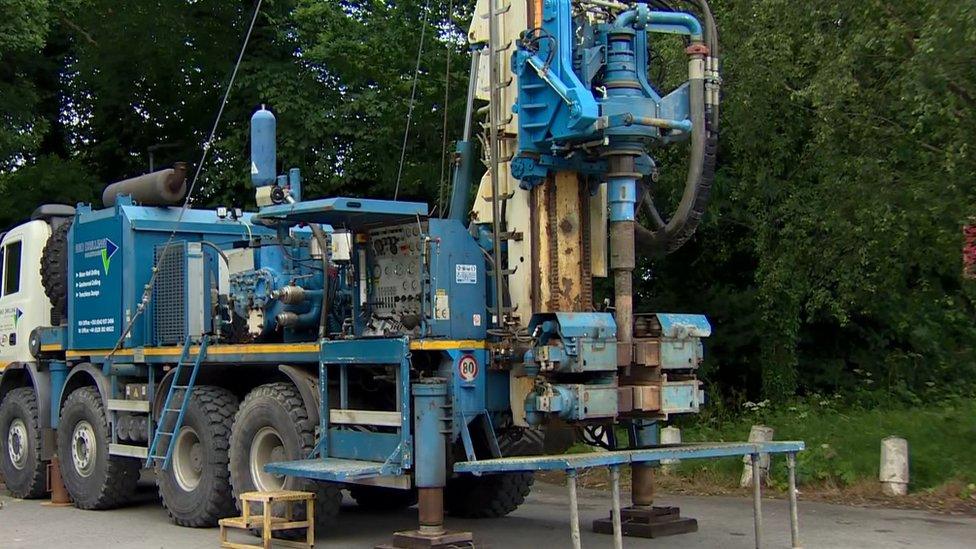
Some of the boreholes will be drilled at the Stormont Estate
A project to test if Northern Ireland can plug into the planet to reduce emissions has been launched.
Geothermal energy is the heat stored in the ground far beneath us.
GeoEnergy NI will use boreholes at two sites - Stormont and Greenmount - to test if that heat could help us move away from fossil fuels.
Stormont's Department for the Economy (DfE) is leading the project and said surveys show the geology in Northern Ireland has potential.
Shallow boreholes of a few metres deep will be drilled on the Stormont estate, while survey work at the College of Agriculture, Food and Rural Enterprise (Cafre) Greenmount campus will test where boreholes of 2.5km deep would be best placed.
It is hoped information available from the sites next year will be used to design policy.
'Producing our own energy'
The project is part of Stormont's Energy Strategy Action Plan, which focussed on reducing carbon emissions and moving towards zero-carbon affordable energy by 2050.
"The renewable energy strategy is all about becoming self-sufficient and affordable renewable energy," said Richards Rogers, the DfE's head of energy.
"So we're producing our own energy. It's good for security of supply, but it's also about the cost of energy."
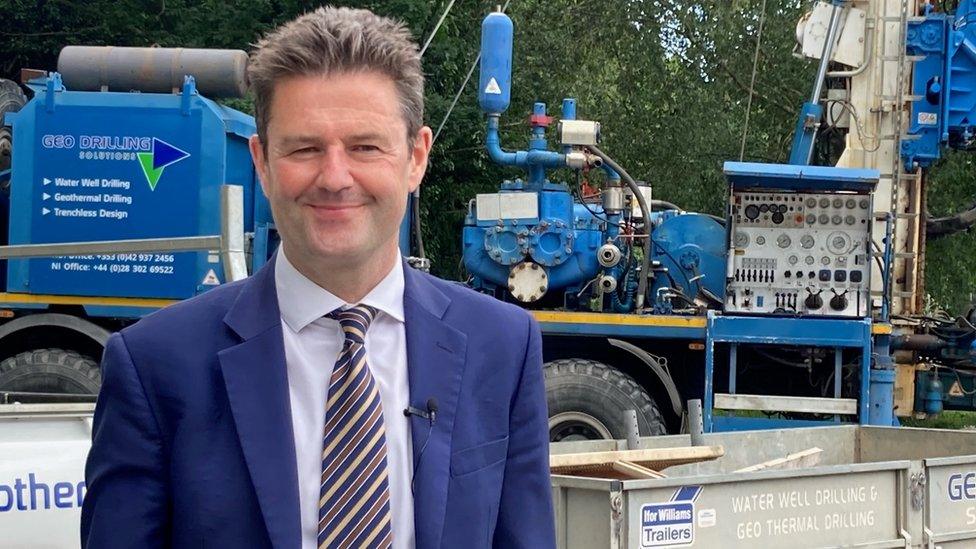
Richard Rogers, the head of energy at the Department for the Economy, said it was a "massive economic opportunity"
He explained that the Cafre test site will attempt to access underground water at temperatures of 70C to 80C, which would then be used to heat buildings on the Greenmount campus.
The idea is to wean Northern Ireland off its reliance on external energy providers, so that domestic and industrial costs could be locally controlled.
"That's really the aim of the project - it's to understand properly the economics and to facilitate the private sector investment in future geothermal projects across Northern Ireland where we can provide a lot of our heat, all being well, providing the economics stack up."
He added that it should be a "massive economic opportunity".
'Vital role'
Mr Rogers's boss, DfE permanent secretary Mike Brennan, described GeoEnergy NI as a "milestone project".
"As a reliable, low carbon, renewable energy resource that occurs naturally within the earth, geothermal also brings with it a host of environmental, economic, and social benefits.
"It will play a vital role in helping the sector to develop, increase Northern Ireland's future security of energy supply and ensure we can maximise this valuable renewable energy source for generations to come," Mr Brennan said.
DfE said it was delivering the £3m project with "scientific support from the Geological Survey of Northern Ireland (GSNI) and a specialist contractor team led by Tetra Tech Europe".
"Geothermal is regarded as one of the most environmentally-friendly ways of producing local, sustainable, and low-carbon energy and is available 24 hours a day, 365 days a year, whatever the weather," said GSNI's director Marie Cowan.
"Northern Ireland is very fortunate to have favourable geology with significant untapped potential for geothermal energy right beneath our feet.
"Building on our extensive data, research, and mapping to date, GeoEnergy NI will provide us with invaluable data to help us realise this potential and deepen our understanding of the subsurface even further."
There are plans to open a mobile visitor centre later this year "to further enhance the public's awareness and understanding" of the geothermal energy sector.
Related topics
- Published20 January 2022
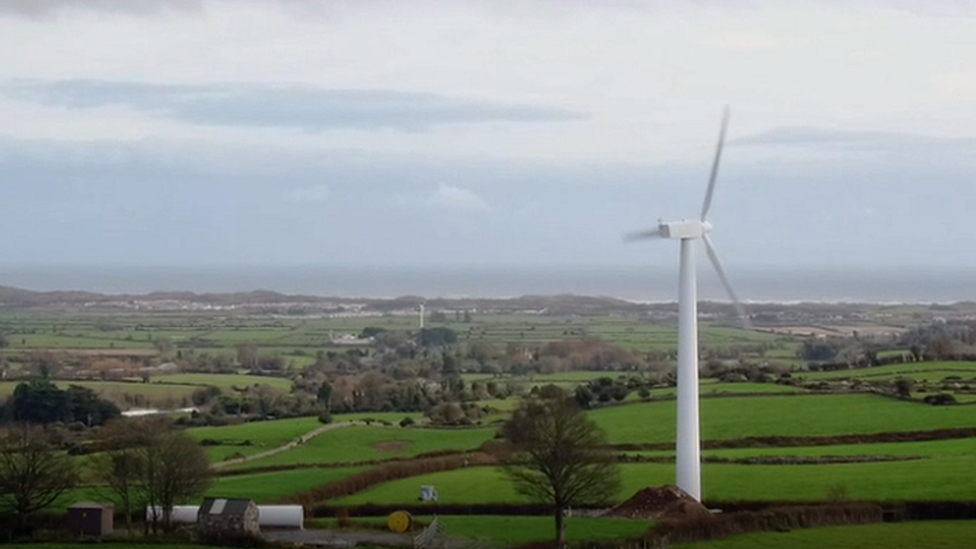
- Published1 November 2021
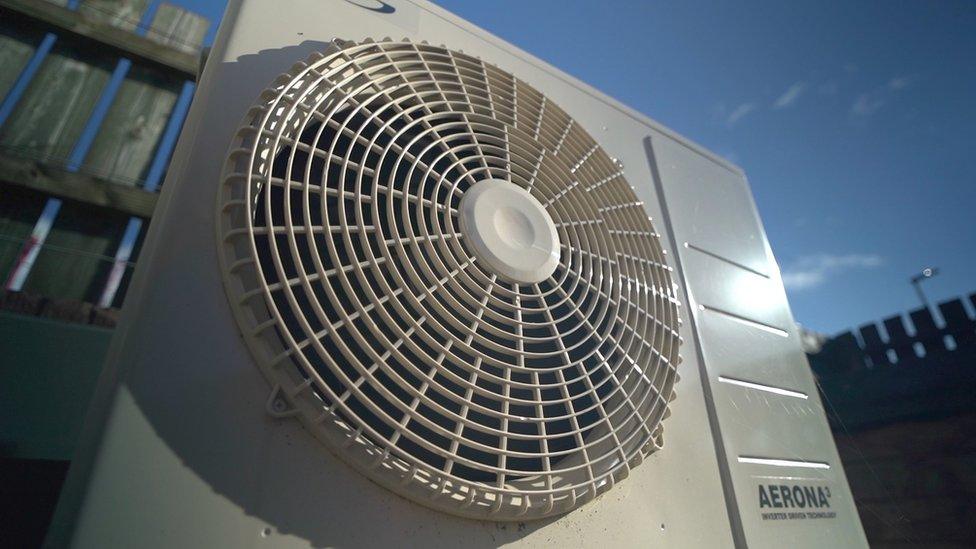
- Published1 October 2022
